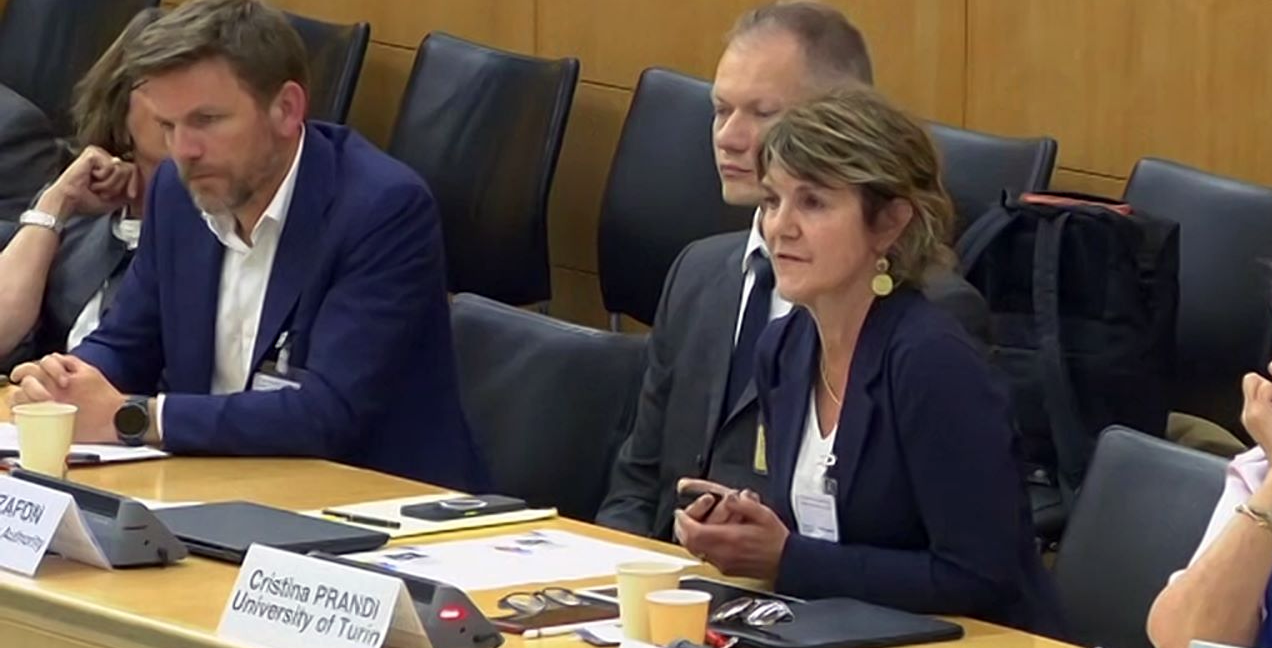

 09/06/2023
09/06/2023The METI (Ministry of Economic, Trade and Industry of Japan)-OECD Bilateral Workshop on co-creation-an innovative model of collaboration that synergistically brings together research, industry and other stakeholders-was held May 24-26 at the OECD Conference Centre in Paris. The event aimed to promote discussions and comparisons on the role of science, technology and innovation policies in driving co-creation processes for future transitions, with a focus on international collaboration and engagement.
One of the keynote sessions, titled “International Co-Creation for Biodiversity: Problem Definition, STI (Science Technology and Innovation) Capacity Building and Policy Advancement,” featured Prof. Cristina Prandi, Vice-Chancellor for Research at the University of Turin and Science Coordinator of Butterfly Area, among the speakers. The session focused on how international co-creation in STI can improve efforts to protect biodiversity, particularly in regions with high levels of biodiversity but limited resources.
Cristina Prandi’s participation highlights the importance of her work as a researcher and her commitment to creating collaborations to meet global challenges. As a recognized expert in her field, Prandi outlined examples of best practices currently underway at UNITO for managing research and innovation activities in international co-creation projects.
During the session, speakers were asked to address key questions about the role of international co-creation projects in developing biodiversity STI capacity, effective measures to reconcile local economic development with biodiversity, and the best ways to engage local communities and industries in promoting new technologies and innovations.
The European and international framework under which Next Generation EU funds are being issued is enhancing the capacity of universities to improve environmental sustainability through scientific contributions, educational programs, and institutional alignment to achieve climate neutrality. Biodiversity is a central element on which to base sustainable development, and the study of different levels of biodiversity and technological innovations can identify new solutions that can implement and protect different forms of life.
The University of Turin is strongly committed to sustainable transition initiatives, including the National Biodiversity Future Center – NBFC, the Spoke 2 – Green Technologies and Sustainable Industry Ecosystem NODES, and the MIRRI Research Infrastructure. Butterfly Area is also a full part of the University of Turin’s science venues, where several departments will develop projects in synergy with researchers in interdisciplinary areas such as agribusiness, green chemistry, renewable energy and bioeconomy, taking advantage of the presence of the education pipeline and research excellence in sustainability-related topics to target the private sector with the intent of co-creation.
